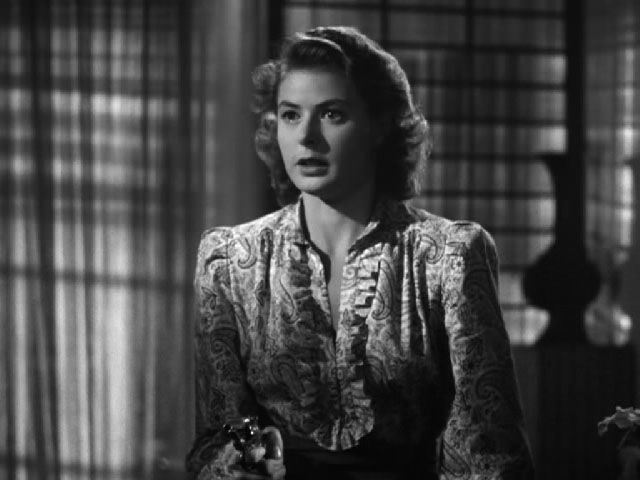Casablanca (1942) (Draft)

Perhaps this film more than any other prompts me to wonder whether an emotional response to a film is caused only by the story content (and the set-up that surrounds it) or by something else besides. That is to say, is it only the defiance of the clients at Rick's in singing La Marseillaise or the bitterness of Rick's heartbroken outbursts at Ilsa, that either uplifts us or causes us an empathetic pain?
Or is it, once we have seen the film several times, the anticipation, the expectation, the understanding, the familiarity, the cosiness?
Presumably, for those who put this near the top of their list of top films, it's both. But what this says to me is that cinema, like all art, has the potential to transcend the facts of its content, its component parts, its structure to become something which comes alive with what it is to be human. It seems to vibrate somehow, and so do we, both at the time of watching and afterwards.
Even from Max Steiner's Warner Brothers fanfare, my excitement levels start to rise because I know I'm going to enjoy the dialogue, the characters, the character actors, the editing, the action, the photography, the style, the stars, the subtle looks and glances, the heroism, the sadness, the beauty - the whole Hollywood package. Steiner's music is integral to the whole enterprise, but it works only as part of a perfect whole. In fact, music plays a significant part throughout, not just telling us what to feel, but giving us cues to the story. The whole film is shot through with the ambiguity of luck, the roll of the dice or the spin of the wheel that will (in two instances, literally) win a fortune or lose one, and will allow some refugees safe passage to Lisbon, or even, in the case of Ugarte (Peter Lorre) bring death. So, Sam (Dooley Wilson) sings "Knock on Wood" at the Café Américain. Even before that, he sings "It Had To Be You" with the lines:
Why do I do just as you say
Why must I just give you your way
Why do I sigh, why don't I try to forget
It must have been that something lovers call fate
Then later, how apt is the singing of "La Marseillaise"? The lyrics of the national anthem of France warn of an invasion by Germans!
Sam is like a Greek Chorus, commenting on the action and themes of the story, and this is before we get to the most significant song, that both binds Ilsa and Rick together.
In fact, the contribution of the other minor characters is also significant. Their own story reflects an aspect of Rick and Ilsa's romance, but their nods and winks, and comment on the main story (for example, Sascha's kissing of Rick at his doing a wonderful thing) adds to the density (and pleasure) of the telling.


